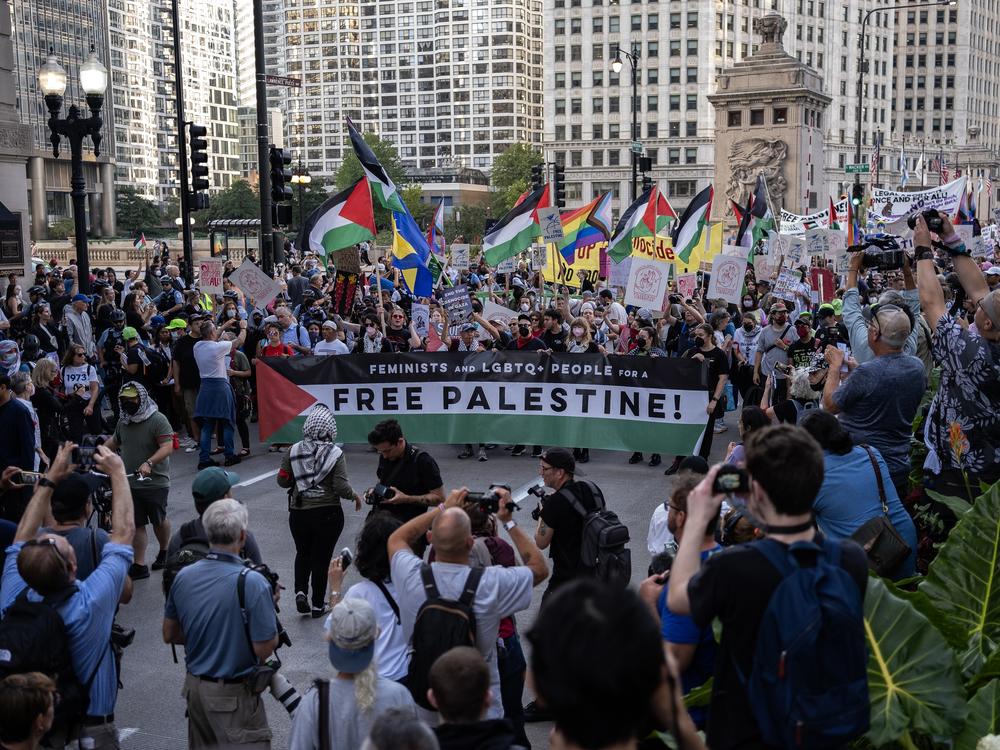Section Branding
Header Content
Opinion: Chicago's protests show democracy's shifts since 1968
Primary Content
CHICAGO — I was here in Chicago’s Grant Park in 1968: sixteen years old, hair to my shoulders and putting out an underground newspaper, which we hoped could hold onto the comet tail of those times.
The whole country felt wounded. Two great national figures, Martin Luther King Jr. and Robert F. Kennedy, had been assassinated. A president had chosen not to run again in the face of opposition. And Democrats left Chicago in 1968 divided and often angry, inflamed by a war overseas and a fractious primary season at home.
But this year’s Democratic delegates seem almost giddy over their nearly unanimous nominations of Vice President Harris and Minnesota Gov. Tim Walz.
The most vivid images of the 1968 convention were outside, here in Grant Park, where blue-helmeted Chicago police struck demonstrators with their nightsticks.
It was the first time I smelled tear gas — right about where I am standing now. It was the first time I felt I had to run for fear of getting hurt. A subsequent commission said the police had inflicted what they called “unrestrained and indiscriminate police violence … upon persons who had broken no law, disobeyed no order, made no threat.”
But the signature images of this year’s 2024 Democratic convention have been in the convention hall: the state-by-state dance party roll call that included Lil Jon; 17-year-old Gus Walz, weeping with pride to hear his father’s acceptance speech; and the nominated candidates themselves, raising clasped hands.
This year’s protesters over the war in Gaza are surely as impassioned as those who marched against the war in Vietnam here in Grant Park. But this year’s demonstrations have been much smaller. Dozens of people have been arrested. But there has been no notable violence.
The 1968 convention heard plenty of voices from the stage who urged their party, eloquently and defiantly, to end the U.S. war in Vietnam. But 2024’s protesters point out that no one was permitted to voice their view from the stage.
Protests are a part of what is often described as the whole messy business of democracy. They can be acts of faith, in a way, that history can be changed by people who turn out together to raise their voices, hold up signs and call out for change, even when it may not be popular.
The beating of protesters on this spot here in 1968 has tarnished Chicago’s name ever since. But in 2024, the protesters and police reminded us how great cities can contain a multitude of voices, and give them a chance to be heard.

